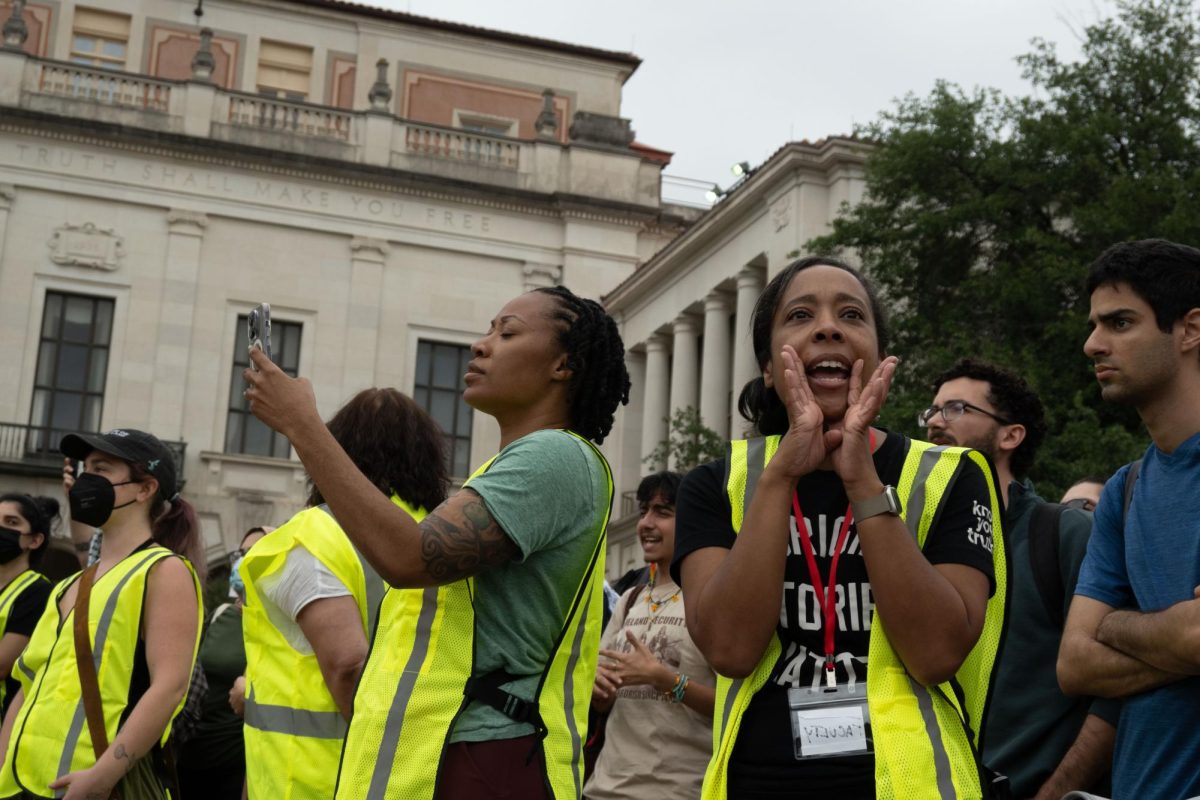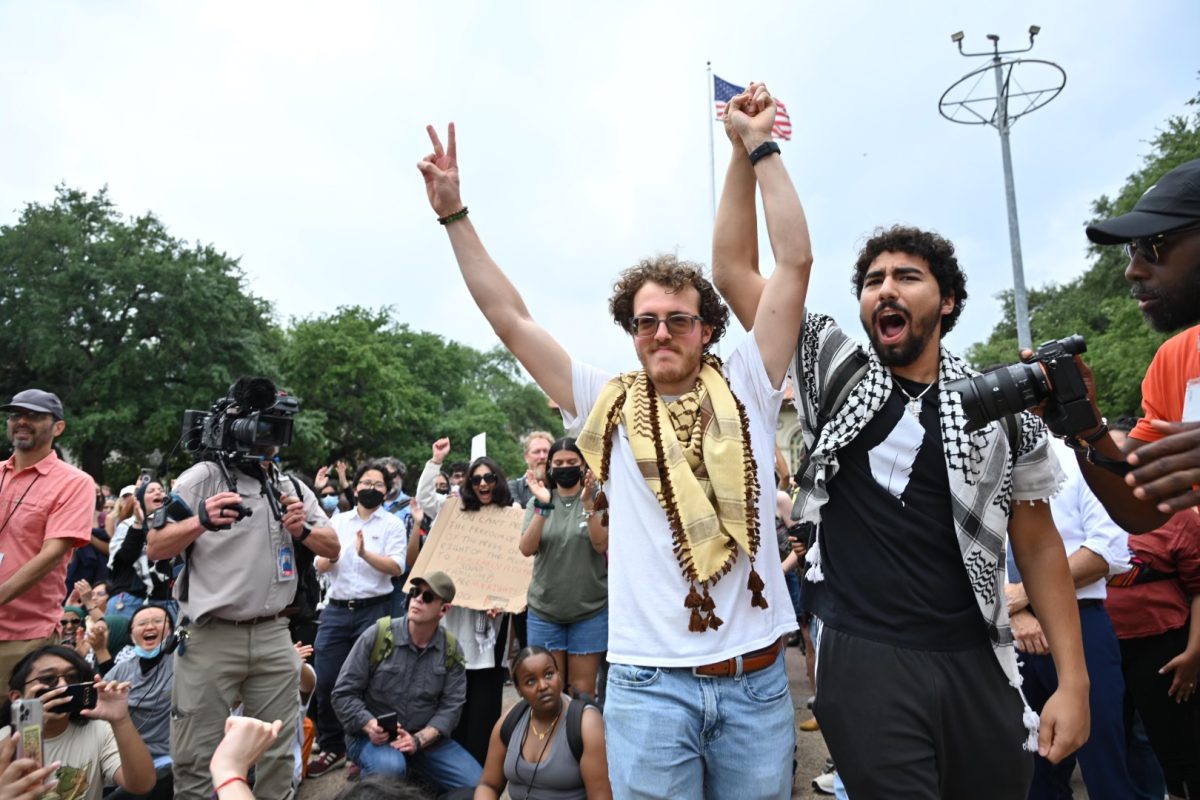A Gallup/Knight Foundation survey released this month found that college students feel less secure in their ability to express their First Amendment rights.
Of the five rights promised in the First Amendment, the survey showed students were the most insecure about their right to peacefully assemble.
“(At) a lot of peaceful protests and rallies, people try to rile them up,” biology freshman Paloma June said. “That threat makes students a lot more scared to go out and speak their opinion.”
Students who felt that the freedom of the press is secure dropped the most, from 81 percent of students in 2016 to 60 percent in 2017.
“I can see why if people aren’t careful about what they … publish online or on the news or in any kind of media outlet, then they’re obviously going to lose sponsors. They’re going to lose relationships and viewers,” said Antonio Vela-Garcia, advertising and radio-television-film freshman. “People have a lot less tolerance on what others say.”
The survey revealed that part of the differences in students’ feelings of security could be attributed to their political party. Between 47 and 61 percent of Democratic students, 58 and 70 percent of Independent students and 71 and 80 percent of Republican students felt secure in their First Amendment rights.
“A lot of people are really judged for expressing their views whether it be liberal or conservative,” public health freshman Michelle Cajero said. “But I can see how that’s more a thing that Republicans would be protective of and want secure.”
The report also found a “significant” disparity in the feelings of security in First Amendment rights between black and white students, with an 18 percent gap indicating that black students find it harder to exercise their right to peacefully assemble.
“I’ve seen (the disparity) before in the classroom in the way that professors will treat students,” psychology junior Teju Adeniji said. “Sometimes it’s noticeable, sometimes it’s very passive aggressive and as a (black) student sometimes you just feel like you can’t really say anything.”
However, Adeniji was not in agreement with the rest of the report’s findings and said at UT, students are allowed to express themselves without many restrictions.
“On student campuses, I feel as if students are allowed to be more vocal than ever now, and I’ve seen a lot of people be able to protest and march for whatever their rights are,” Adeniji said.













